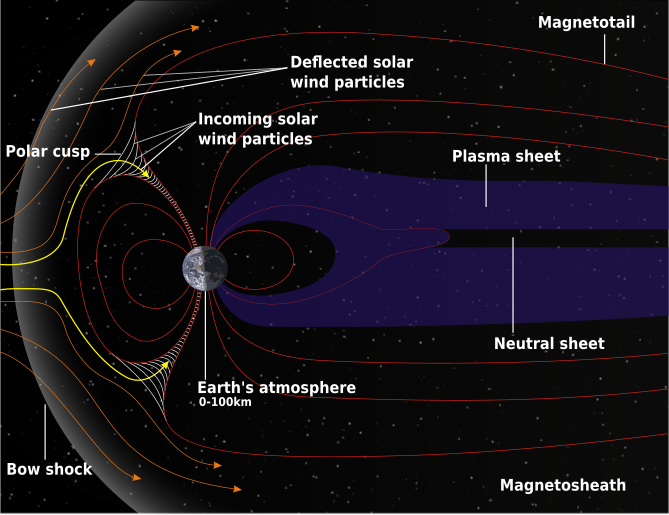In Steven Spielberg's 1997 science-fiction film The Lost World: Jurassic Park chaos theorist Ian Malcolm, commenting on the decision to move genetically-resurrected dinosaurs off the island where they have been safely contained, says to the scientist-entrepreneur responsible for creating the creatures and placing them in a theme park, that this "is the worst idea in the long, sad history of bad ideas and I'm going to be there when you learn that."
When I read an op-ed piece in the New York Times by physicist Lawrence Krauss at the end of August, 2009 proposing A One-Way Ticket to Mars, I was reminded that the history of bad ideas marches on, specifically those bad ideas derived from a technological vision of the future not anchored in human reality. Of course, bad ideas come and bad ideas go, but this one appears to have legs, as the publication in November of this study, To Boldly Go: A One-Way Human Mission to Mars, by Dirk Schulze-Makuch and Paul Davies in The Journal of Cosmology would indicate.
Having little hope of being around myself when and if this ill-considered idea is implemented, much less when it either reaches fruition or unravels, I take the opportunity to state my objections now.
Why a one-way trip?
 |
| John Kennedy before a joint session of Congress, May 25, 1961 |
 |
| Schematic of the Earth's magnetosphere with the solar wind flowing from the left |
As we might guess from the lead-lined aprons that are provided for our protection when we undergo dental x-rays, there are indeed ways to shield passengers during a long space voyage. Unfortunately the increase in the weight of a spaceship by including such shielding adds significantly to the cost of the mission. To make matters worse, the weight of fuel and provisions required by a two-way trip make the cost even more prohibitive, at least in our contemporary political and fiscal climate. So, first and foremost, a one-way journey is proposed to reduce the cost of a manned Mars mission, with the intention of putting it within practical reach relatively soon.
 |
| 2001: A Space Odyssey anticipated challenges posed by long-duration space flight |
Motivations for a Mars colony
According to the authors there are several motivations for the establishment of a permanent human presence on Mars, whether using a one-way Mars mission as a kick-start or not. They are in brief:
- to offer humanity a "lifeboat" in the event of a mega-catastrophe here on Earth,
- to provide a base of operations for the scientific study of Mars, especially in the search for life forms that it might harbor, and a springboard for exploration of the outer solar system,
- and to serve as a "strong and uplifting theme for all of humanity" with all the political and social benefits that would supposedly imply.
General Reservations
That said, my criticisms of the scheme outlined in the Schulze-Makuch / Davies paper have less to do with whether a one-way mission achieves their stated limited technical goals, and more to do with whether it represents either a cost-effective or an ethical way to go about colonizing or even exploring Mars. I am also skeptical whether the imagined urgency that drives their dubious solution is in the least bit well-founded. These will be the concerns that I will address in the parts of this essay to follow.

Does a One-Way Mission to Mars Make Sense? - Introduction by Marc Merlin is licensed under a Creative Commons Attribution-NonCommercial-NoDerivs 3.0 Unported License.
Based on a work at thoughtsarise.blogspot.com.

4 comments:
Wow, this does strike me as a really bad idea. We are a long way from creating a self sustaining space environment. This sounds like a suicide mission. Killing astronauts certainly would not achieve "an uplifting theme for all of humanity." And most of the science could be done just as well with probes. Maybe we should start with something like a self sustaining colony in Antarctica.
Pat,
Thanks for your comments!
I couldn't agree with you more, as the next few installments of this essay will indicate. We are certainly on the same wavelength as far as the value of experimenting with self-sustaining habitats on Earth as a start, for example.
I'll be addressing some of the human dimensions of the proposal in an upcoming post. It would be nice to have you weigh in on them, given your experience in the U.S. Navy submarine force.
Marc
Marc,
I have several points to your blog post.
First off, you make an example of radiation, as one of the life threatening problems astronauts have to face on their way to Mars. Well, there is no point arguing that sending people to Mars under current circumstances (a.k.a. the day after tomorrow) is not a good idea. But nobody is talking about sending people tomorrow. Lead scientists say it will take at least 20 years (in my opinion more than 40 years) to construct vehicle capable of safely transporting human crew to Mars. While 'safely' meaning protecting them from the dangers of long term live in space.
And only with that being said, scientists ask: should we build space vehicle with intention of returning the Mars crew to Earth, or build one substantially (4 to 6 times) cheaper one without the possibility of return, and spend the money on provisioning long term crew on Mars?
The economy speaks clearly, sending humans to another planet is and always will be insanely expensive. Returning them back even more so. On the other hand one supply flight comes pretty cheap compared to that. Even cheaper than sending another rover.
I will also comment on you other posts about this, but I admit I have much less of a 'problem' with them.
Joseph
Thanks for your comment, Joseph.
I'm largely in agreement with your analysis.
I do want to point out that this introductory post is pretty much a presentation of the rationale for the Schulze-Mackuch / Davies proposal, and it is they that say that, even in the time-frame you suggest, a one-way mission will entail significant health impact to passengers due to cosmic radiation.
Eventually, I'll get to the end of this series with the unsurprising conclusion that given the costs, lack of relative benefits and risks of the Schulze-Makuch / Davies one-way mission, "what's the rush?"
I think that this coincides nicely with what you are saying.
Cheers,
Marc
Post a Comment